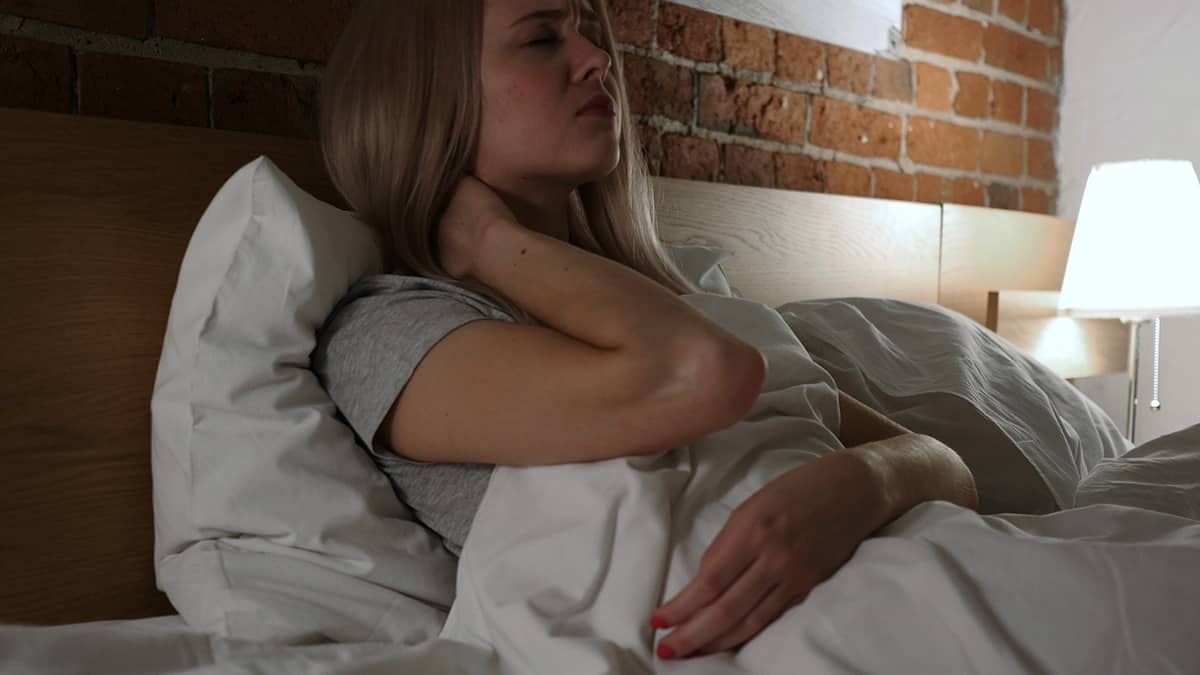If someone is a reader of Mattress Clarity, they probably spend a fair amount of time thinking about what type of mattress and sheets they like and how these bedding choices may affect their sleep.
But in the process of choosing between a coil or memory foam mattress and bamboo versus Egyptian cotton sheets, it’s easy to overlook another important aspect of our bedding: the humble pillow.
As it turns out, the right pillow can really help people get a good night’s sleep — and a pillow that’s a bad fit for them could affect their health in negative ways. Here are three ways a pillow can influence one’s physical wellbeing, plus how to know when it’s time to hunt for a new pillow.

The Wrong Pillow Could Cause Neck Stiffness or Pain
According to the Harvard Health Letter, pillows that are too soft or too hard can lead to neck pain or even spinal pain. “If your neck is bent in any way for an extended period of time, you’ll get uncomfortable,” physical therapist Matthew O’Rourke explains on the website. O’Rourke told the site that certain pillows can hyperextend your neck, twist your neck, and/or or offer inadequate support.
The Harvard Medical School’s Healthbeat website offers some options to address neck stiffness or pain that’s caused by an ill-fitting pillow: “If you sleep on your back, choose a rounded pillow to support the natural curve of the neck, with a flatter pillow cushioning your head. This can be achieved by tucking a small neck roll into the pillowcase of a flatter, softer pillow, or by using a special pillow that has a built-in neck support with an indentation for the head to rest in.”
RELATED: Best Pillows for Neck Pain
An Unsupportive Pillow Could Also Cause Pain in Your Shoulders, Back, and Arms
If people have a pillow that doesn’t adequately support their neck, other muscles and ligaments may be affected as well. To avoid bodily pain from an unsupportive pillow, try to choose an option that allows the head, neck, and spine to be in a straight line. (This is also referred to as “neutral alignment.”)
Finding the right pillow for someone will depend on their personal preferences as well as their primary sleep position. People who sleep on their sides tend to need more loft and support than stomach sleepers, who typically need a flatter pillow option.
Your Pillow Could Be Harboring Dust Mites, Spores, and Other Nasty Things
“Night after night of sleeping on a pillow causes it to absorb body oil, dead skin cells, and hair,” National Sleep Foundation website Sleep.org explains. “This isn’t just gross-sounding—it can also make the pillow smell and, what’s worse, can create the perfect environment for dust mites (common allergens).”
Per the Mayo Clinic website, dust mite allergies can trigger sneezing, coughing, a runny nose, itchy eyes, nasal congestion, and an itchy feeling in your throat or mouth.
RELATED: How to Prevent Dust Mites in Mattresses
When It’s Time for a New Pillow
Not sure when to replace your pillow? Here’s what Sleep.org recommends: “Check to see if any foam or batting in the pillow is lumpy and, if it’s a feather pillow, ask yourself if you constantly have to fluff it up to support your head or if it still does it on its own. Another test: Fold it in half and see if it stays that way. If it does, it’s time for a new one.”
[Editor’s Note: The content provided on this site is for general informational purposes only. Any information provided is not a substitute for professional medical advice. We encourage you to consult with the appropriate health expert if you have concerns.]

